In this episode, we talk to six of our Aviva Communities co-chairs to find out how they're working towards making Aviva a more inclusive organisation.
The Aviva Communities are our employee groups. They help ensure all our people have an equal voice and provide a global support network to strengthen our inclusion efforts across the business.
Recorded late last year, we wanted to find out what our six communities had achieved, what made the co-chairs want to volunteer to help run them, and to give each a little bit of time in the spotlight.
Transcript
Ben Moss
Hello, and welcome to the Aviva Podcast, my name is Ben Moss and in this episode of the Aviva Podcast, we talk to Sue, Sarah, Lee, Jonny, Shamini and Alexandra – six of the co-chairs of our six different diversity and inclusion Communities.
They’re all volunteers, taking time from their busy days to help make Aviva an even more inclusive place to work, and we wanted to take a few minutes of their time to learn what their Communities have achieved, what made them want to be a co-chair in the first place, and just to give them a little bit of time in the spotlight.
Sue Kelly
Hi, I'm Sue Kelly. I work in the Savings and Retirement part of Aviva and I'm one of the co-chairs of AvivAbility.
Ben Moss
So what's the purpose of AvivAbility? What does that community do for Aviva?
00:13 Sue Kelly
It's the community that is focused on disability, and that could be physical disability, it could be mental health conditions, it could be long term health conditions... and our aim is really to create a workplace where all individuals are treated fairly and their ambitions and opportunities within Aviva aren't limited by their disability.
Ben Moss
What's your personal connection that made you want to get involved with AvivAbility? Why was that the community that spoke to you and drew you in?
Sue Kelly
I have a disability myself, which is partially a physical disability and it also has a hidden aspect to it as well, but generally my experience at Aviva has been great and I've had a lot of support in managing and working with my disability.
But I have also had some experiences where it hasn't been as good as I would have hoped. And I think that was largely to do with a lack of awareness of disability, and so that was my real driver for joining AvivAbility - to help raise that awareness and help address some of the issues that I'd personally faced, and no doubt other colleagues are also facing.
Ben Moss
Based on your work within the communities have you seen any change in Aviva based on issues you've raised?
Sue Kelly
Yes, so we've been going as a community for about two years, and it's probably fair to say it's been a fairly slow start because there's quite a lot to do, and because the awareness of disability isn't as high as the awareness of some of our other communities. But, even so, we have been able to make some pretty good traction, I think, particularly in the mental health space, has been quite a lot of focus through AvivAbility, and also supported by the Health Heroes communities on mental health.
We've launched the sunflower lanyard scheme within Aviva for people that have hidden disabilities. We've made some progress around our communications internally within the organisation, and I think we just started to raise, more generally, awareness of disability and being able to support some people individually and being able to support some managers in how they can... or leaders rather... in how they can support their colleagues that have disabilities.
Ben Moss
Based on your kind of experience in your work with the community, how do you rate people’s understanding of different types of disability? Because obviously the type of disability people can have is pretty broad, but do you think there's a good understanding within Aviva of that or not?
Sue Kelly
I would say it's getting better, but probably not as good as it could be, and I think the thing with the disability agenda is... unless it affects you personally then the levels of awareness of it is not great. So a lot of the people that are in our community are people that have a disability or long-term health condition. So we're sort of reaching out through that group.
The sunflower lanyards started some conversations that weren't happening previously, so particularly around hidden disabilities. They start some good conversations around Neurodiversity and one of the things actually that that happened this year was there was a new set of training materials that were launched on Grow focused on neurodiversity and next month we're focusing on raising awareness of dyslexia and dyspraxia.
So it's a fairly slow process of raising awareness. But I think still there is a bit of a view that unless someone's in a wheelchair or has a walking stick or a guide dog... you know, they're not disabled, and clearly the disability agenda is much, much broader than that.
It is quite hard for people to understand sometimes that the way they're treating someone who has a disability might actually be discriminating towards them. Whereas if you behaved in a similar way to somebody, looking at it through an ethnicity lens, or a gender equality lens, it's so obvious.
You know, we've got a plan and we’ve got our areas of focus... the things we're focusing on primarily are around accessibility. Which is accessibility of comms, accessibility of the buildings. We’re also looking at our recruitment processes to make sure they're fully inclusive. And the other thing, I suppose, actually... we have become members of the Business Disability Forum and we subscribe to the Valuable 500. So, our ambition in 2021 is to attain the business disability standard, which is an external accreditation.
06:03 Sarah Hall
Hi, I'm Sarah Hall, in my day job for Aviva I am a business intelligence manager, but I am also a Co-chair for Aviva's UK Balance community, which is all about gender parity.
Ben Moss
So Sarah, what's the purpose of the Balance community in Aviva? What are you trying to achieve?
Sarah Hall
So for Balance, I think that the main focus is really to raise awareness for important gender issues, and through creating that vibrant community feel, we hope that we can be kind of a mouthpiece for gender related priorities for our leadership teams
Ben Moss
Is it only women who are on the Balance community or do you have men as well?
Sarah Hall
The Balance community is inclusive of all genders, and we really focus on gender issues that are important to Aviva, and for that reason, I think a lot of issues relating to women do come up. But it is really, really important that people of all genders become part of that conversation, and part of that activity, either because it affects them or because they want to be allies for people of other genders.
Ben Moss
Now we ought to make it clear that the communities, or being in the communities and being a Co-chair, is a voluntary role, so there's no payment for this. You don't necessarily get lots of time off work to be able to do this kind of thing. So what was it that drew you to want to be a part of the community and to be co-chair?
Sarah Hall
I think the main thing is, having gone through a process over the last few years of really trying to recognise my own privilege, I sort of came to the realisation that I want to do something with it and want to create a platform to bring other people up - to get their voices heard.
And on top of that, I have an absolutely wonderful team who are incredibly supportive of me performing my Co-chair role. And a really, really, incredibly supportive manager who is also a Co-chair of one of the communities. So as you can see within our team, we really deeply care about our colleagues and about customers and about inclusion. So, you know, it's really made it very easy to do that. But it's something that we're all very passionate about, and I think social change has become something that I am personally interested in beyond just Aviva.
Ben Moss
And based on the work of the Balance community, have you seen any changes in Aviva?
Sarah Hall
I would say the changes that I've seen in Aviva… it’s kind of difficult to relate to specific activities that we've done, but I've definitely seen a trend over the last couple of years to more and more people getting engaged in diversity and inclusion stuff, or people wanting to feel more purposeful in that way, perhaps realising that we do work for a large corporation and we have bargaining power in our respective markets, certainly in the UK.
But yeah, I see more and more people engaged. More and more people demanding change and more and more people wanting to get involved, and I think that's a really powerful thing and I think it's a great time to be part of the communities to really sort of capitalise on it.
Ben Moss
And is there a lot of crossover between the different communities?
Sarah Hall
Absolutely. I think that every topic of conversation, and every person in fact, actually, really has lots of different dimensions, and each part of these different experiences can be viewed through different lenses - be it gender or age or ability and so on and so forth. And so, for that reason, the communities do work together a lot and collaborate a lot. And probably need to do that for the benefit of everybody, really. But yeah, it’s quite interesting to carve out the different lenses that each community might have on a particular topic.
I think that probably the thing that I have enjoyed seeing in terms of outcomes of the communities is the wonderful networks it enables. Obviously, Aviva, we have a huge presence in the UK market. Many thousands of colleagues. And it is really fantastic seeing like-minded people getting to work together on stuff that they're passionate about.
So I think in terms of really great things that have come about from the communities. It's just allowing people's careers to be accelerated, but also my personal network has grown. I've met some amazing people and made some fantastic friends just through the communities that probably my regular job at Aviva wouldn't have allowed me to do, and have managed to give fantastic opportunities to other people, perhaps earlier in their career.
I think that's another great thing that's probably like really worth mentioning. I think a lot of people think that communities might just be about change within our most senior leadership, but it's also about winning the hearts and minds of everybody in Aviva, also creating some values to live by that people sort of gravitate towards. I think that for that reason it becomes a community in a cultural sense. Where you have a group of people who you know, really care about the same stuff. And it's great to work with those people inside and outside of Aviva. Aviva’s got wonderful contacts with other bodies, you know, like Dive In as well. So yeah, really good for that reason.
12:05 Lee Innes
I'm Lee Innes, and I lead an analytics team here in Aviva in the UK and I'm currently also Co-chair of the Aviva Carers community.
Ben Moss
What caught your interest, first of all? Why did you want to be part of the Carers community?
Lee Innes
I've been really keen on supporting all of the communities for some time, and within my own department I'm actively encouraging membership of all of the communities, so some of my team are involved in Origins, Balance, Pride and AvivAbility, so you know these things really, really do matter to us.
Outside of Aviva I've also got active interest in special needs and special educational needs, and I'm a governor at a number of schools and within that role I do see that there's a lot of challenge that parents have and then carers have regarding juggling work responsibilities and juggling... you know, the stresses and strains of battling through the system to get good provisions for their family members, and that really means a lot to me.
And so I thought I'd get involved in this community to do my best to accelerate the movement of the community, and also to take it to a period of celebration where we can get, you know, some real celebration of the great work that our colleagues do when it comes to caring and juggling work responsibilities.
Ben Moss
Is there any reason personally why you felt Carers was the right one for you?
Lee Innes
Oh yeah, I'm 42, I've got a 3-year-old daughter and through Coronavirus, as an example, there's been a lot of juggling of work responsibilities, but also my mother is unwell, you know, she suffers from mental health challenges and throughout the last six months I've spent a lot of my time on the phone to social services, to mental health teams whilst also looking after my daughter with my wife and all of that is really difficult, and I think I'm quite sympathetic to the situation that it’s not just me that's in this situation, right? All my colleagues and my friends at Aviva have got their own story to tell, and I think that with any luck I'm going to help to get us all talking about it.
Ben Moss
I think you're quite new in role in terms of Co-chair of the Carers community so rather than talk about what's gone before, what's your vision? What's your dream for the community?
Lee Innes
I think there's a few things, really, that are really important for this community. I think the first one I would say is that Aviva doesn't have a shortage of support for its employees and colleagues. There are really great policies in place. There's no shortage of that. What there is a need for is consistency of application of those policies to ensure that everywhere across the organisation is fully embracing the support that's available.
But I think the support needs to move beyond policy setting and it’s the support of the community about how can we get a group of people who are incredibly experienced at providing care, at negotiating care provision for their families... How can we get those people to support each other, to share their stories and to also celebrate some of the fantastic work that they do. I think that's where we want to move it forward.
I think in addition, there's a couple of other key points of interest. I think the Carers community is almost... there’s an element of it being the unsung community. There's a lack of celebration around that community. But actually, when you think about it, it is central to all of the other communities, right?
You don't just perform a caring role. You may well perform a caring role of a young person with a disability – in which case there’s a link into AvivAbility. During coronavirus it’s obvious from some of the stats that we've seen that the burden of childcare has sat largely with females, so there's a link into the Balance community and so on.
And I think in every example I can see there's a bridge between the Carer community and all of the other communities, and it's a key objective of this community to leverage that ability to work together with other communities.
I think the final point is... another area of focus is to also just reach out to external organisations and bring some of those organisations in, so we can share with our colleagues some of the other provisions that are available to people. Whether that be charities or local authorities, benefits agencies, tax officials, all of the extra stuff that's out there to support our colleagues we want to engage with.
And then finally, another key initiative is to also work with education systems, so there's a lot of young people in carer roles, young people that in the future we will look to recruit, and there’s a whole wealth of experience within this organisation around supporting people in caring roles. And I feel there's a great volunteering opportunity for some of our carers to act as mentors for some of those young people who, potentially, maybe need a little bit of support. So some great ideas. But you know, moving us away from policy and procedure and into celebration, collaboration, and sharing of ideas.
Ben Moss
Do you think, on the whole, maybe there's a slight misunderstanding or not quite the connection between who actually is a carer, and actually there's more people who could probably fit into that caring bracket than maybe some of us think there is?
Lee Innes
Well, it's a really good point, Ben. I think if we look internally at Aviva, our own community has got around 200 members within the social media site that we have internally, and there’s 17,000 people working in the UK at Aviva. So, you know, there is a lot more people that need to be engaging with this community.
But you're quite right, a lot of carers care, but don't realise that that is indeed what they are doing. They take it for granted. They feel that looking after their own children is just a normal day-to-day job, right? But looking after a child with dyspraxia, dyslexia... That brings about some additional challenges that I think many parents in this organisation probably are grappling with right now.
Many, many people are grappling with childcare provisions, certainly during the coronavirus pandemic and its height in lockdown, dealing with the lack of grandparent support and schools. But also I think there's some examples that people wouldn't typically understand.
So for instance, if you’ve got a friend who's currently suffering with anxiety, you know, being on the end of the phone, or you know, taking a visit and having a cup of coffee, that is also caring. Also that that caring not only does a lot of good for that person that you’re caring for, but also can be a strain upon you and I think it's allowing us all to have those conversations and recognising that actually probably all of us to some extent are caring. And we want to get to that pinch point, understanding, you know, everybody needs to celebrate being a carer.
18:57 Alistair McQueen
Hi, I'm Alistair McQueen. I'm head of savings and retirement at Aviva and I'm also the Co-chair of Aviva's Generations community.
Ben Moss
What exactly does the Generations community aim to do in Aviva?
Alistair McQueen
Generations, we’re one of the six communities inside Aviva celebrating diversity and inclusion, and we wake up every day thinking about age, the diversity of age that there is inside Aviva.
We've got people who are in their teenage years, people who are in their 70s who work for Aviva in the United Kingdom, and we want to make sure that all those people, regardless of their age and our age, feel at home and can contribute their most to the Aviva organisation and our customers.
Ben Moss
Now you’re not a teenager but you’re not 70 either, you're somewhere in the middle, without giving too much away. Why was the Generations community something that sort of struck a chord with you that you thought you wanted to get involved with?
Alistair McQueen
Well, Aviva is the largest pension provider in the United Kingdom. We service and serve about 6 million people in the UK, helping them save for and live in retirement, so age is in the heart of what Aviva does.
And while we spend many times talking to the world outside about the importance of age and of planning for the future, I wanted to bring that message into the organisation. I wanted to be able to speak to all of our people and make sure that in no way was age a barrier to opportunity inside the organisation. So understand the pressures and the challenges and the opportunities for those people starting their career, for people like me in the middle of their career and also for our most experienced members of staff.
So age is what I do in my day job and I wanted to bring that age focus into the organisation and Generations presented the perfect way for me to do that.
Ben Moss
How important is it that, um, so business owners, managers, leaders are aware of the differences between people and what age they are and what stage are at their career? Given that we all know that the retirement age, well, there is no such thing really as a retirement age anymore, and the state pension age, which sometimes is linked to retirement age is increasing on what can be seen you know, kind of a regular basis and is creeping towards 70, so how important is it for big businesses to be aware of the different age ranges? They're going to be managing, particularly in the future?
Alistair McQueen
I would say two things. One, the world is an incredibly competitive place, and every day in Aviva in the UK 15,000+ people come through the front doors of Aviva, and if we can make an environment where that individual feels they can contribute fully, whether they're 17 or whether they're 76, that's great for them, and it's really good for Aviva and its competitiveness. So there's a real win for the organisation in permitting an empowering people in that way.
But secondly, when it comes to aging, we are as a society, we are aging. The fastest growing population of employees are the over 45s. We want to make sure that that population doesn't think they are in the wind down of their career.
We want to make that population, regardless of age, feel that they've got a strong future with the Aviva organisation. So we've been introducing a concept called a midlife MOT and that does play to me in my mid-life. We educate people on their wealth, their work, their wellbeing, to send the message that you have a future with Aviva - we value your skill, your experience, and we want you to give so much more so that we can thrive as a company, and we can be a great home for our 15,000 plus people.
Ben Moss
Based on the work that generations community have done, what kind of changes are you seeing in Aviva?
Alistair McQueen
First of all, we're learning. We're learning about the diversity of ages in Aviva.
We didn't really know before Generations that our youngest employee was 17, our oldest is 76. So virtually 60 years of diversity inside the organisation. We didn't know that our average age was 40. We didn't know that our average length of service was ten years. So we’re starting to understand the diversity of ages inside the organisation.
And we've then tried to translate that understanding into action, and I would say three areas that we've been focusing on.
One is the under 30s, people entering work and starting to understand what pressures they face and they very quickly tell us their financial priority is to get on the housing ladder, and we're asking ourselves what could Aviva do to respond to that need.
Secondly, we've identified the issue of the menopause. Half of Aviva's workforce are women, and it’s an issue that Aviva had to some extent been blind to before now. But now we have support in place and education in place for all employees to make sure that we're not blind to that issue.
And the third area is workers over the age of 45. They are actually the fastest growing age group of employees in Aviva and we just want to make sure that that fast growing population, that great asset of skill and talent that we have, feel at home and feel they have a future with the Aviva organisation.
The perception of the future is the younger end of the population of an organisation must not be the case. Whether you're 17. Whether you're 76. We want all those people to feel they have a great future with Aviva organisation. And that's what we in Generations are trying to achieve.
24:13 Shamini Rajan
Hi Ben, my name is Shamini Rajan, and I am a project manager for the UK Life indie program and my role in Origins is one of the co-chairs.
Ben Moss
Explain to us what the Origins community is about. What's its purpose in Aviva?
Shamini Rajan
Origins is a very broad umbrella, as quite a few of the other communities are as well. We focus on celebrating cultural harmony and trying to help Aviva become a more diverse and inclusive organisation regardless of people’s backgrounds, whether that be religious, cultural, race, ethnic or socio-economic. I guess the focus is kind of celebrating those differences.
Ben Moss
And what was it that attracted you to become one of the Co-chairs of Origins? Why did that particular community catch your attention?
Shamini Rajan
So I had the fortune of moving out to Canada whilst I was on the global graduate program at Aviva. I joined the Origins team in Canada, and when we went around the table to introduce ourselves, everyone had said that they joined Aviva Canada Origins because they don't see enough diversity. Everyone, anyone in the world, knows, regardless of being there or not, that Toronto is one of the most multicultural cities in the world. And to see that much diversity across the table... I stood up and I said, “well, I'm from London and, yes, we're multicultural, but I walked into Saint Helens one day, on my first day I think it was, back in 2017 - and I didn't see anyone who looked like me. Maybe two others? And both were either receptionists or PAs. And it just struck something that I've never thought of before and since then I've never looked back.
I've always been looking to learn, you know, what is it in the corporate industry? Why is it the way that is? So moving back to the UK last year, I got involved with Origins straight away and the Co-chair role just gives me a bit more of an edge in terms of that added step that maybe I can take things in the direction that I've been wanting to do for so long. And yeah, the community are great
Ben Moss
Do you feel you're starting to see a change in the few years between taking that first step into the Aviva head office and now? is there a change happening?
Shamini Rajan
I think in certain parts of the businesses, yeah. But as everyone knows and says, “we've got a long way to go”. Just looking at the makeup of the organisation, if anybody walks into an office, you can tell that we're not representative of the offices that we're in - the locations that were in, sorry. So you know, there's a long way to go. Are we progressing? Yes. Maybe. But very, very slowly, you know? Change needs to happen a little bit quicker. But hey, it's a marathon, not a sprint.
Ben Moss
How did the communities, particularly Origins, but how did the communities help drive change within Aviva?
Shamini Rajan
Voluntary roles are those that bring out the best actions and the communities are all volunteers. Everyone in them is doing it because they care. They want to drive that change. They want to support the global inclusion team and the businesses to make that visible difference as well as whatever is happening in the background, so I think it's just a good place because people want to do it.
Ben Moss
That's an interesting point. The communities across Aviva are voluntary roles. I haven't thought of that before. Do you really think that's a key point to them? They're not paid for jobs with a salary, people are doing it for the love, and that's where the real change comes from?
Shamini Rajan
Yeah, look at any charity organisation. They do such great things because they do it out of the goodness of their own hearts, right?
It might be just a personal opinion, but I think any voluntary opportunity you know people are doing it because they want to. No one is forcing them to be there... unless maybe you’re younger and you're gonna have to get some voluntary experience under your belt [laughs].
But yeah, you know in these kind of big organisations if you're paid to do something naturally people are working to targets or, you know, there could be some kind of hidden agenda. Not everybody, but I'm just saying [laughs], but I think when it comes to these kind of roles, you've got the people in the room who want to do something. And of course, if the focus kind of derails a little bit and then it's just about having the right people to bring it back together again.
Ben Moss
You touched on it at the start, but with the Origins community... a lot of the work is around race and that kind of diversity, but it's broader than that, isn't it?
Shamini Rajan
100%. I think, you know, given sort of this year's eye opening experiences to the world... Origins was something people did not understand. I believe there was a project called origins in the company that wasn't one of the diversity and inclusion communities, so up until, you know, the unfortunate death of someone, people weren't comfortable or open enough to have conversations about race.
And because we had that momentum, I guess as a community we felt it was right that we focused on our race conversations. Talking about the difference between ethnicities, why it's important to get involved regardless of who you are. But after thinking about the last couple of months, the other Co-chair, Jenny and I, we've been talking about how we have kind of taken away the celebratory part of it, and that to focusing on the other faiths and looking at the social mobility aspects - which we're kind of doing very newly – but yeah, it's great to have such important conversations, but remember, Origins isn't... I think whoever doesn't know, just needs to know that we're also more.
Ben Moss
Just a final point that there are six communities across Aviva - do you work closely together with the others?
Shamini Rajan
We're definitely getting better, I reckon. Again, I've only been in the Co chair role for maybe three months officially, and I've definitely seen quite a lot of intersectionality. People wanting to do things.
I think the other co-chairs are great, so we you know, in the future, I think there are definitely opportunities to work with each other. It's difficult because as you’re aware we are currently in the midst of planning for Black History Month and obviously out of the goodness of everybody, they want to get involved, in terms of other communities, and trying to bring that intersectionality... but someone made a really good point about not doing things for the sake of it. Just because someone wants to get involved and do something for their community related to Black History Month, it doesn't mean that you have to just pull out everything you know, like... For example, I've got World Menopause Day I believe coming up. And though I think it's quite important that maybe we could link it together, because if you look at the African culture and the Asian part of the world, menopause is very much taboo conversation, right? So it would be a great link. However, I was challenged with the thought of, you know what? What is this? What's this link? Let's not just overkill it, and it's a good point to make. I think it's trying to do it in a very articulate way but also just watching how you do it and just not over killing it.
Ben Moss
You mentioned Black History Month. That’s a real focus for Aviva this year. Can you just talk me through why so much emphasis is going into Black History Month? Why it's so important for the Origins community?
Shamini Rajan
So I believe this is the third year that we're celebrating Black History Month, and the honest truth is that whilst we had Black Lives Matter movement, the conversations at Aviva, Chika, one of our sponsors, had a conversation with our black colleagues and on the calls... two calls, and both times people had raised the point that it's great we've celebrated Black History Month in the past but have we brought a single black person into the conversation?
And it really struck Jenny and I that... did we? You know, you can't celebrate such a big thing and not have input from people who live, experience it, understand it more than anyone else. And honestly, you know, given what has happened this year and what the media has brought to everyone's attention. We’d not been doing justice to our black colleagues, to our black communities. So this is us trying to do right, and bring them in on the conversation and just doing it in a right way, right?
This can go really wrong, and we are aware of that, but we're trying our best. We really are trying our best and there's a lot going on in the background, so I'm really hoping it'll be a good month.
32:33 Alexandra Bird
Hi, I'm Alexandra Bird. I work in the Aviva Investors internal communications team as my day job, and I'm the Co-chair of the Pride community at Aviva.
Ben Moss
What's the purpose of the Pride community within Aviva? What are you and the rest of your team there to do?
Alexandra Bird
I see it as safe space for LGBT staff and allies to come together and talk about issues facing the LGBT society more widely than Aviva, our experiences inside Aviva, and then how we can really support the inclusion team to deliver on their strategy and the things they want to do.
I see it kind of as a consulting role, almost, so people are building their D&I strategies who maybe don't understand maybe the full lived experience of an LGBT member of staff, how they can contribute, or what kind of behaviours, policies, what's going on in society, and you sort of have that... we come together to talk about that, and then go back out to the business and kind of provide that info.
Ben Moss
And why is it that the Pride community was something that caught your attention, that you thought you wanted to be a part of that?
Alexandra Bird
So I identify as bisexual, so when I joined Aviva it was always something I was looking into. But I started off more as a passive member. So I was observing the things that the Pride community were doing. And the changing point for me wanting to get actively involved was, I think, when I grew a bit more confident in my own ability to feel valid in that community. I think there's a bit of maybe Bi-erasure going on, which is something we may talk about. This is a plug: We're hosting a Bi event for Bi Visibility Day, which is one of the great things... I think that's how I have more accessibility to Pride, through the events that they put on and do.
But the moment it changed to me really wanting to get actively involved was the Black Lives Matter movement, and that kind of cultural moment where we all stood up and said “I want to put my voice behind something that really matters” and “how can I get more involved in the communities that I care about”. And obviously Origins is our faith and ethnicity community and it's... How can you best support that and the work they are doing and your own community at the same time?
Ben Moss
This might sound like a bit of an obvious question, but I will ask it... why is it important that people of different sexualities are well represented in, and can be openly represented, in a business like Aviva? Why is that important?
Alexandra Bird
I think it's important because you have that line of always wanting to reflect our customers, wanting to reflect our staff and the communities that we’re based in, however diverse that is. But I also think being having someone who's a senior leader or someone that you can see is visibly a part of the LGBT community. You never know the effect that's gonna have on someone. So someone who might just be joining the business.
So I look back at myself two years ago when I wasn't brave enough to be out at Aviva and talk about that side of myself, that side of my life, which obviously is a very important part of who you are. So I think the ability that we have to celebrate ourselves within the Pride community and say ”this is who we are” could inspire someone else in the business who may not want to actively join in that sense, but you never know the effect you could be having on someone, which I think I'd like to hope we could do - and if anyone does want to get more involved, that would be very, very welcomed.
Ben Moss
What changes have you seen within Aviva that can be attributed to the work of the Pride community?
Alexandra Bird
I think because Pride was the first community, or existed before we had the actual community model, I think it's opened up the conversation for other, maybe other kinds of less visible identities.
So for example, if we look at AvivAbility, another community where it might not be as visible in the way that being LGBT isn't visible. Not all disabilities are visible. And starting that conversation... and I think, because Pride has such a long and established presence in Aviva, we’re able to take those lessons and share them, to open out a wider conversation on inclusion and what all those different axes can look like. And obviously when you have an identity, it's not just one part. You can be a carer and you can be a woman and you can be of a different ethnicity, and I think we're realising now as communities how we're gonna come together, and we have.
And having those conversations to say “Oh this is the mistakes we've learned from in the past” or “this community is now building a new strategy. What have you been through? How does that process work? What's the best way to engage partnerships externally?” Those lessons that we can share, I think, are really powerful and contribute to the wider narrative.
Ben Moss
So is there a bigger picture? Within Aviva, we have the communities, they do some fantastic work in representing certain groups of people and then making changes across the business. But is there something bigger picture you'd be going for with the communities?
Alexandra Bird
Yeah, I think so. I think we have to recognise that Aviva is a massive brand name and we have presence all over the world, we’re a global company, and I think now is really the moment to seize that brand power and do something really important with it. And it's definitely the moment to do that.
Whether that's partnering with other big brands like we've just done - we signed Trans in The City which is showing our solidarity with trans rights and understanding how important they are. So things like that, coming together with other brands to form collectives so we can lobby governments to make the right decisions about reform.
So things like the gender recognition act. How can Aviva make their contribution to that known? And where we stand known. So if a trans person is looking and saying ‘where do I want to insure my car? With a company that respects me’. if a person is looking for a job, they know we value them. Our customers, they know we value them.
And even on a smaller scale... So that’s kind of the big tier, the medium tier is engaging with our communities. Get what can we do when we're partnering with schools or charities that focus primarily around LGBT needs for Pride? But again, the argument extends to any community.
And then on a very personal level, it's so simple. It's just using your voice and keep talking. Talking to everyone. Talk to people who have different views. I think we've become so entrenched and polarisation has got to such an extreme that we’ve reached the point where we can't have conversations with people who have different views. And if you feel able to, please, use your voice, educate yourself on issues that the LGBT community are facing if you are an ally, and then use that knowledge to make little, small positive changes both in and outside of work.
So that's all from the big end of massive companies down to what you can do as one person.
Our Aviva Communities are:
- AvivAbility – supporting people with visible and invisible disabilities
- Aviva Balance – for gender parity
- Aviva Carers – helping carers and parents
- Aviva Generations – for workers of all ages
- Aviva Origins – celebrating cultural difference, including Race, Ethnicity, religious belief and Social Mobility
- Aviva Pride – being yourself at work, LGBT
Learn more about our Aviva communities
Learn more about diversity and inclusion at Aviva
Here's a selection of our other podcasts
-

Features
Retirement: the longest holiday you’ll ever plan
22 Nov 2023
In this episode of the Aviva Podcast, Steve and Tom unpack workplace pensions.
-
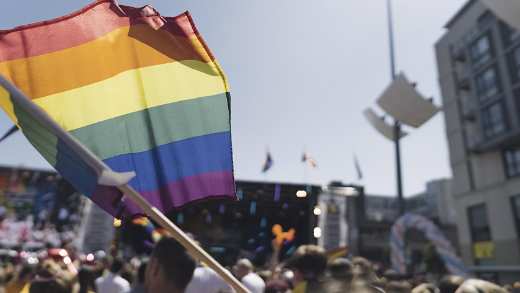
Features
Aviva Pride: amazing, supportive and hopeful
27 Jun 2022
David, Jenny and Jason share their stories of what Aviva's Pride community is all about, why it’s so important, and what it means to them.
-
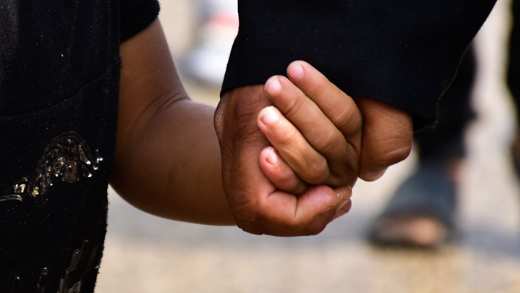
Features
Our carers community: compassionate, caring and resilient
7 Jun 2022
Listen in as Martin, Natalie and Kofi share their stories of why Aviva Carers is so important, and why the community means so much to them.
-

Features
Wellbeing special: living and working with autism
1 Apr 2022
In this wellbeing special episode, our host Johnny talks to Aviva employees and couple Matthew and Daniel about their experiences living with autism.
-

Features
Wellbeing special: dealing with loneliness
22 Dec 2021
In this wellbeing special episode, our host Johnny talks about loneliness with Dr. Rob Rosa, Chief Medical Officer at Aviva.
-

Features
A better day after tomorrow
11 Oct 2021
In this episode of our podcast series 'A Better Tomorrow', we dig a little deeper into climate change. What’s happening to our world and what, if anything, can we do about it?
-
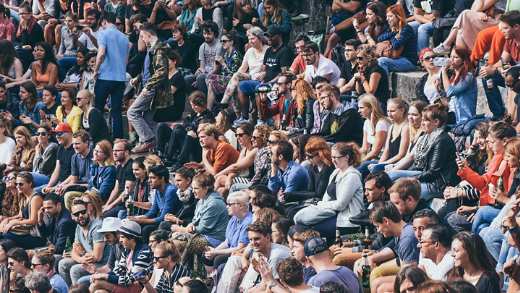
Features
Wellbeing special: tips to tackle 'lockdown anxiety'
27 Jul 2021
In the first of a mini-series of wellbeing specials...
-
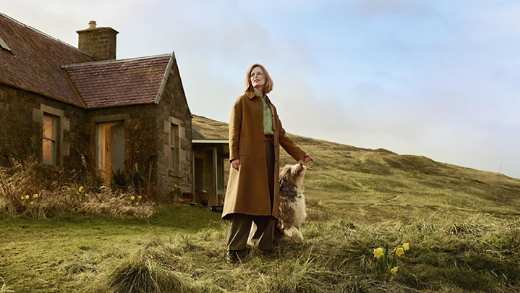
Features
The power of a sonic logo
23 Jun 2021
When Aviva unveiled its new brand positioning, 'It takes Aviva', it did something it's never done before.
-

Features
Could robots lead to a better tomorrow?
29 Mar 2021
It's been a hundred years since the word 'robot' was first used*, but are we another century away from seeing them in our daily lives?
-

COVID-19: The man who sent everyone home
12 Feb 2021
One year on from when we started hearing about COVID-19, we speak to John Bernard, Aviva's Director of Group Corporate Security.
-

Can ‘cognitive reserve’ improve resilience to dementia?
9 Dec 2020
In the latest episode of the Aviva Quantum podcast, we talk about increasing our resilience to the effects of dementia.
-
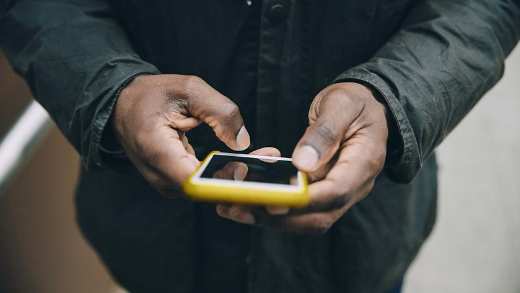
Retirement in the time of coronavirus
19 Oct 2020
People in mid-life are a population under strain. Could a simple app, empower them to take control and improve their work, wealth and wellbeing?
-
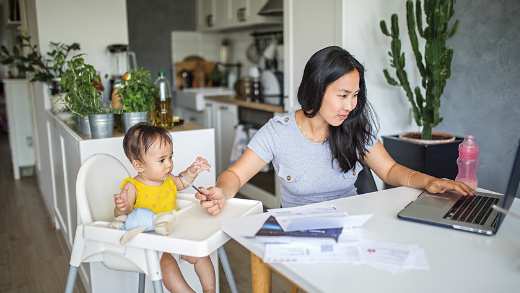
Flexible working: what workers want
23 Sep 2020
What can supportive employers do to make working from home easier for their people?
-

How to be a leader when you're at home
16 Jul 2020
COVID-19 has seen millions of people swap their offices for homeworking. How can you be an effective leader from home?
-
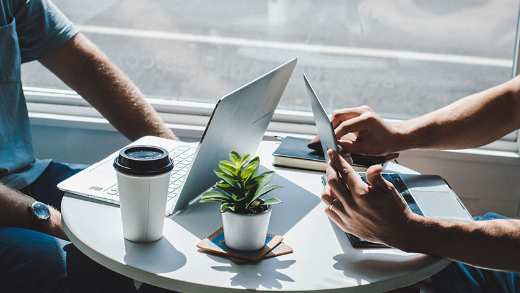
Ever heard of an MOT for humans?
5 Sep 2019
Every year, you put your car in for its MOT. But how often do we take a step back and give the important areas of our life an assessment?
-

Dementia: the 21st century's biggest killer
3 Sep 2019
Dementia is the 21st century's biggest killer and 1 in 3 babies born now will go on to develop dementia.

















